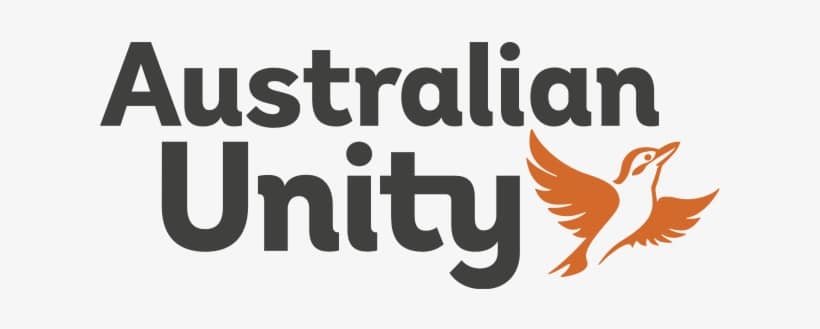Home > Health Insurance > Health Insurance Costs
Health Insurance Costs
Compare the cost of health insurance online with Savvy today.
Author
Savvy Editorial TeamFact checked



We’ve partnered with Compare Club to bring you a range of health insurance policies to help you compare them side by side.
The cost of private health insurance is determined by a range of factors. By understanding the variables at play and comparing your options thoroughly, you may stand a higher chance of finding health insurance which provides the type and level of cover you require at a price you can afford.
Get to understand the factors affecting the cost of private health insurance here with Savvy before getting your free quote for the cover you need. You'll be able to compare offers from a respected panel of insurers to bring you a range of 100% free, no-obligation quotes to consider. Start the process with Savvy today.
What are the factors which affect the cost of health insurance?
Private health insurance in Australia is covered by two different types of health insurance policies, which cover different purposes:
- Hospital cover: can provide cover when a patient is admitted to hospital for treatment
- Extras cover: can provide cover for non-hospital treatments and services and preventative healthcare
However, the average cost of each of these policies is influenced by the same factors, despite them offering different types of health insurance cover. These include:
The type of policy you choose
How much you pay for your health insurance will depend on the type of policy you choose to buy, which in turn will be influenced by the sort of health cover you and your family need. An extras policy will generally cost less than a hospital cover policy, while a combined policy will typically be the most expensive option. You can compare a range of different health insurance policies here with Savvy to gain a greater understanding of what types of policies are available.
The tier of cover you choose
Hospital insurance is strictly regulated by the Australian Government. All tiers of hospital cover must by law offer coverage for a set number of clinical categories. There are four tiers of hospital insurance available, and the level of cover offered increases as the cost of the policy rises. The four levels are:
- Basic – offers cover only for limited treatments, such as psychiatric services, palliative care and rehabilitation
- Bronze – offers all the above cover, plus cover for an additional 18 clinical categories
- Silver – offers cover for up to 29 further clinical categories
- Gold – offers top-level cover for all listed clinical categories
If you choose a basic hospital cover policy, you’ll only be insured for treatment for the three clinical categories mentioned above. Therefore, if you require hospital treatment for another condition, such as appendicitis, you wouldn’t be covered and would have to pay the full cost of your hospital admission and surgery yourself if you chose to be treated as a private patient.
With extras cover, the levels of coverage are less clearly defined. More expensive policies generally offer a higher level of cover, higher claimable limits and more included services. For example, a cheaper extras policy may allow you to claim back 50% or 60% of the cost of treatment, whilst a more expensive top-level policy may allow you to claim back 75% to 100%.
Similarly, extras policies provide a set dollar limit to the amount you can claim for each clinical category. These dollar limits reset each year. Cheaper policies typically offer lower limits, whilst more expensive policies will offer higher benefit amounts. For example, on a cheaper extras policy, you may be able to claim back up to $1,000 a year on major dental, whereas a more expensive policy may allow you to claim up to $3,000.
For this reason, when choosing between levels of health insurance, it’s important to think about what your health needs are now and what they may be in the future. You can get quotes for all types of health insurance right now online here with Savvy.
The excess and co-payments you’re prepared to pay
- Excesses: with hospital cover, you may be required to pay an excess if you need to make a claim on your policy. An excess is a set amount you must make as a contribution towards the cost of your claim. Excess amounts can range from zero to a maximum of $750 for a single person, or $1,500 for a family policy. The lower the excess you choose to pay, the higher your premiums will be. For example, a silver policy with a $750 excess will cost less than a silver policy with a $250 excess.
- Co-payments: co-payments are another out-of-pocket expense which you may have to pay if you’re admitted to hospital, depending on the exact terms and conditions of the policy you buy. They average around $100 per day you spend in hospital, up to a capped limit of around $700.
The rebates and reductions you may be entitled to
The Australian Government offers assistance with the cost of paying for health insurance. The Private Health Insurance Rebate you are entitled to will depend on your income and age, with older Australians, and those who earn less than $90,000 a year, receiving more assistance. In addition, all taxpayers are required to pay the Medicare Levy, which is a 2% tax on your income which helps pay for the Medicare system. However, depending on your age and income, you may also be entitled to an exemption from paying the levy (for example, if you earn less than $23,365p.a.* as a single person). You can use a health insurance calculator to work out how much Medicare Levy you have to pay, and how much private health insurance rebate you are entitled to.
*Figures correct as of February 2023, but subject to change.
How can I reduce the cost of my private health insurance?
Sometimes it's necessary to cut back on household expenses, for example if someone suffers a period of unemployment. In such circumstances, it may be necessary to look for ways to save money. There are various ways you can reduce the cost of your private health insurance. These include:
- Compare policies through Savvy – by requesting a range of quotes through Savvy, you can get a good idea of the range of health cover available and the comparative prices from our partner’s panel of insurance providers. All Savvy quotes are 100% free and come with no obligation, so you can get comparing and potentially save yourself money today!
- Look at the level of cover you’re currently paying for – do you need cover for all the clinical categories you are paying for? For example, if you have a gold tier policy which includes cover for pregnancy but have no intention of growing your family, you may be paying more for insurance you don’t need. If you decide to switch to a lower level of cover, you won’t have to serve any waiting periods again if you’ve already sat out your waiting period with your first policy.
- Think about your excess – by increasing the size of your excess payment, you may be able to reduce the cost of your monthly premiums. For example, a silver policy with a $250 excess will cost more than a silver policy with a $750 excess.
- Check providers in your local area – many health insurers are networked with particular providers, who agree to charge a reduced gap for that particular insurer’s clients. Determine whether the practitioners you use are affiliated with any particular health insurers, as this could help you get the maximum value from your policy.
- Purchase your health insurance before the age of 31 – if you reach the age of 31 and do not have health insurance, you may have to pay both the Medicare Levy Surcharge (which is between 1% and 1.5% of your income for that financial year, depending on your income level) and the Lifetime Health Cover loading (which is a 2% loading you have to pay on the price of your health care premiums for a total of 10 years). There are also age-related discounts which may be available, equivalent to a reduction of 2% for each year you purchase a health insurance policy under the age of 30, capped at a maximum reduction of 10%.
Types of health insurance
This can help you pay for medical treatment if you need to be admitted to hospital. It can help cover the cost of your admission or accommodation and the fees charged by doctors, surgeons and anaesthetists. It can also cover other costs associated with a stay in a private hospital.
This helps cover the costs of health care treatments outside a hospital setting which aren’t covered by Medicare. This can include major and minor dental treatment, orthodontics, hearing aids, physiotherapy, glasses, contact lenses and podiatry (in most cases with annual limits).
This is a standard health insurance policy designed for a single person, rather than being tailored to cater to the needs of a couple or family. It may include hospital cover plus extras, or either of these types of insurance on their own, depending on what you're after for your health cover.
A family health insurance policy is designed for a family unit including dependent children who may reach up to 31 years of age with some insurers. It offers private health insurance suitable for the whole family and may include shared limits for all members included in your policy.
A health insurance policy aimed at seniors is designed to appeal to people who are in the second half of their life. These are often specific Silver Plus policies that offer the same cover as other health insurance policies, with the exception that pregnancy and childbirth cover may not be included.
Visitors who are in Australia on a temporary basis for travel, work or study may be able to take out Overseas Visitors Health Cover (OVHC). Many visas issued in Australia come with a requirement to take out this type of insurance, which covers visitors who may not be covered by Medicare.
Ambulance cover is generally available either packaged into your private health insurance or on its own as a separate policy or subscription. By having this protection, you could be covered for all eligible ambulance travel in Australia (subject to your insurer's terms and conditions).
The cheapest and most barebones form of private hospital insurance, this can include cover for rehab, in-hospital psychiatric services and palliative care. Having this policy will enable you to avoid paying the Medicare Levy Surcharge (MLS) and Lifetime Health Cover (LHC) loading.
Bronze hospital cover is a step up from basic insurance, including 18 further clinical categories such as ear, nose and throat, bone, joint and muscle, digestive system, joint reconstructions, gynaecology and chemotherapy, radiotherapy and immunotherapy for cancer.
Silver hospital cover is the second-most expensive type of policy and offers the second-most clinical categories. On top of what's offered by basic and bronze cover, it also includes heart and vascular system, lung and chest, blood, hearing device implantation and dental surgery.
The highest level of private hospital insurance available in Australia, gold policies can offer cover for pregnancy and birth, weight loss surgery, assisted reproductive services and insulin pumps on top of all the categories provided by silver, bronze and basic hospital insurance.
Why compare health insurance through Savvy?
100% free service
Our comparison tool doesn’t cost you a cent, allowing anyone to compare offers from trusted insurers around Australia for free.
Compare policies online in one place
You can consider the inclusions, premiums, benefits and other key factors easily with us, whether you’re at home or on the go.
Trusted insurers
Considering offers from trusted insurance providers can help give you peace of mind that you’re comparing high-quality policies.
Frequently asked questions about the cost of private health insurance
No – health insurance in Australia is community-rated, which means everyone pays the same basic price for their health insurance. It is illegal to discriminate against anyone based on their age or prior medical history. Where costs may differ for older Australians is in the rebates and reductions available from the government.
Yes – if you happen to be leaving the country for work, study or travel, some insurers will allow you to pause your health insurance for the period you won’t be needing it. The length of time you’re able to pause your insurance will vary according to which provider you choose. However, you may have to pay the Medicare Levy Surcharge for that period in any one year that you were uninsured. Check with your insurer to understand how a health insurance pause may affect your waiting periods and MLS requirements.
It can, though this will depend on the level of extras cover you purchase and the terms and conditions of your extras policy. For example, if you choose a policy with an insurer that has its own network of private dentists and optometrists, you may be able to get basic dental and optical services with 100% cash back and no gap.
There are several schemes in place to either assist low-income earners with the cost of private health insurance or, in some cases, to provide treatment free of charge. For example, the Child Dental Benefits Schedule provides free basic dental care for children whose parents are recipients of some Centrelink benefits. Check whether there are any schemes that may be able to help you before you buy your policy.
No, you will pay almost the same for a couples policy covering two adults as you would for two singles policies. Therefore, if you're choosing between a singles vs a couples policy, factors such as do you both have similar healthcare needs and want the same level of cover are more important considerations.
Helpful health insurance guides
Looking for health insurance to cover your condition or treatment?
Read one of our helpful guides on a range of different ailments and potential hospital or extras treatments to help you find out if they're covered.
Disclaimer:
Savvy is partnered with Compare Club Australia Pty Ltd (AFS representative number 001279036) of Alternative Media Pty Ltd (AFS License number 486326) to provide readers with a variety of health insurance policies to compare. Savvy earns a commission from Compare Club each time a customer buys a health insurance policy via our website. We don’t arrange for products to be purchased from these brands directly, as all purchases are conducted via Compare Club.
Savvy’s comparison service is provided by Compare Club. Compare Club compares selected products from a panel of trusted insurers and does not compare all products in the market.
Any advice presented above or on other pages is general in nature and doesn’t consider your personal or business objectives, needs or finances. It’s always important to consider whether advice is suitable for you before purchasing an insurance policy.
For any further information on the variety of insurers compared by Compare Club or how their business works, you can read their Financial Services Guide.










